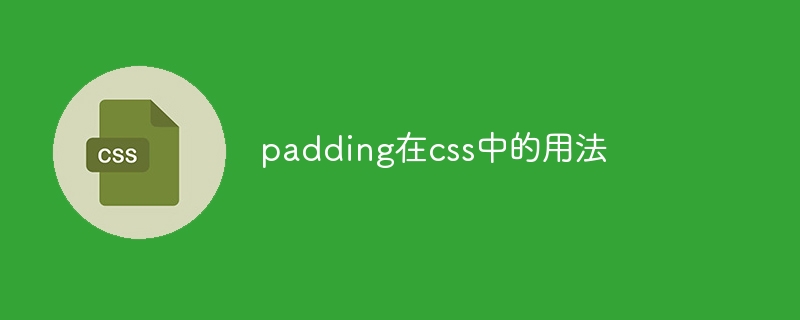
Padding is used in CSS to set the space around the content of an element. Its uses include creating margins, resizing elements, and aesthetic effects. The syntax is: padding:
;, and the units are px, %, and em. It can be inherited and is part of the box model. CSS3 adds padding-inline-start and padding-inline-end properties for horizontal padding.

Padding usage in CSS
padding is an important style attribute in CSS, used to set The space around the element's content. It can help adjust the position of an element on the page and affect its visual effect.
Uses:
padding is mainly used for the following purposes:
Grammar:
The syntax of padding is as follows:
<code>padding: <top> <right> <bottom> <left>;</code>
Among them:
: Specify the padding space above.
: Specify the padding space on the right.
: Specify the padding space below.
: Specify the padding space on the left.
Unit:
padding can use the following units:Example:
/* 设置元素顶部和底部各 10 像素的填充 */
.element {
padding: 10px 0;
}
/* 设置元素所有边距为 10% */
.element {
padding: 10%;
}
/* 设置元素左方填充为 2em,其他边距为 1em */
.element {
padding: 1em 2em 1em 1em;
}Note:
and padding-inline-end properties for horizontal padding, Exact usage depends on text orientation.
The above is the detailed content of How to use padding in css. For more information, please follow other related articles on the PHP Chinese website!